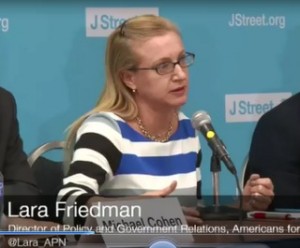 There were only a handful of Israeli settlers beyond the Green Line in 1968, when Lyndon Johnson
became the first American president to express opposition to settlements in the West Bank. Now, despite protest
from every subsequent administration, there are more than 350,000 Israelis living in the West Bank and 200,000
in East Jerusalem. President Johnson’s prediction that settlements would “prejudice a peace settlement” has come
true, as the dramatic rise of the settler movement—in both numbers and political power—has complicated repeated
efforts to achieve a two-state solution.
There were only a handful of Israeli settlers beyond the Green Line in 1968, when Lyndon Johnson
became the first American president to express opposition to settlements in the West Bank. Now, despite protest
from every subsequent administration, there are more than 350,000 Israelis living in the West Bank and 200,000
in East Jerusalem. President Johnson’s prediction that settlements would “prejudice a peace settlement” has come
true, as the dramatic rise of the settler movement—in both numbers and political power—has complicated repeated
efforts to achieve a two-state solution.
In this panel at J Street's 2015 conference, APN's Lara Friedman, together with other experts on American and European policy explored what steps can be taken to halt further settlement growth and entrenchment, and discuss the political and policy implications of American and European initiatives—from discouragement of Israeli settlement subsidies to the labeling or boycott of settlement goods.
Watch to see Lara Friedman, together with Michael Cohen of the Boston Globe and Alon Sachar of the US State Department, with Steve Krubiner, J Street's Chief of staff, moderating. Aviva Meyer, Deputy Chair of APN, introduces the participants. Session begins at 10:35.


